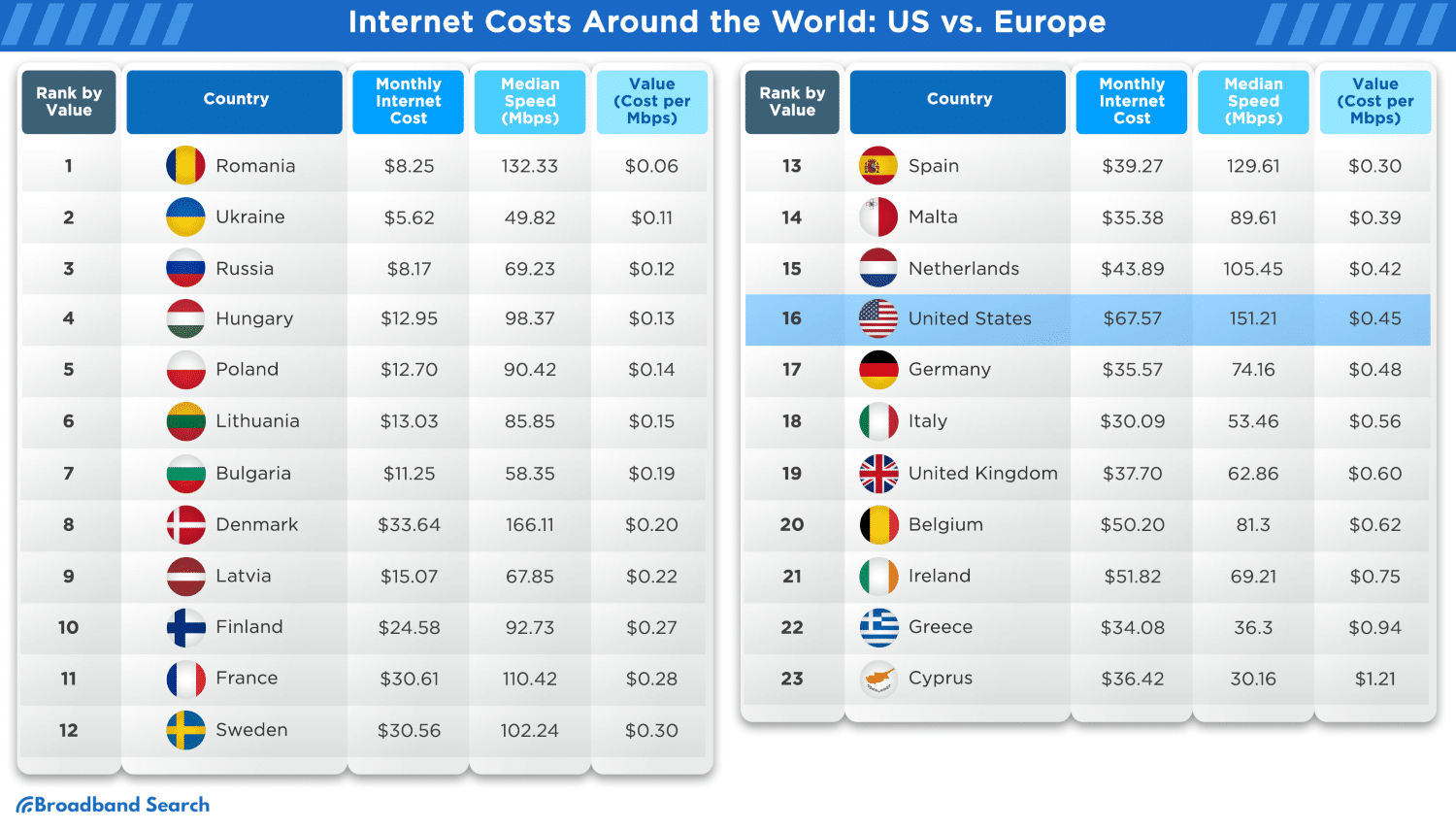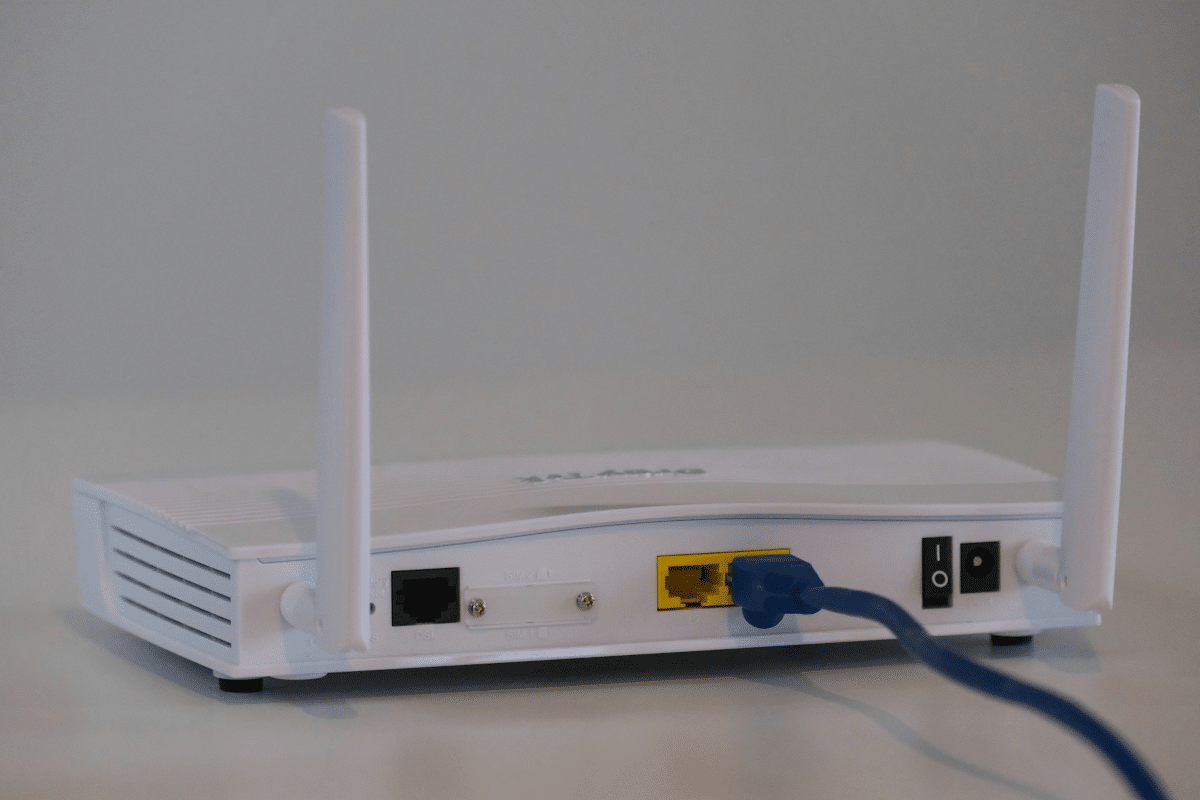Global per capita internet usage continues to grow as services like HD streaming, video calls, and gaming eat up a lot of data. We are spending more time than ever on our various connected devices as the world pivots to a digital future.
One bottleneck that many broadband internet users in the US face is that while their data consumption has spiked, they are constrained by limited broadband plans. The Federal Communications Commission (FCC), which has been talking about the issue for quite some time, is now officially looking into the impact of broadband data caps on consumers and has opened a formal notice of inquiry.
What Are Broadband Data Caps and Why Do They Exist?
Data caps, which are also known as a bandwidth cap put a restriction on the amount of data that a user can use. Typically, it is set monthly but the timeframe varies by internet service providers (ISPs), and in some cases, there can be a daily cap also. Once the limit for the pre-agreed time period is exhausted, the user is shifted to a lower speed, or the internet is stopped altogether.
To get more data at the original speed, the user has to shell out more money. These kinds of agreements were more common in the earlier days of the internet, but they still affect a large swath of the global population.
ISPs use these caps for multiple reasons. The most popular rationale for having data caps is that it helps them better manage the network and prevent network congestion. Companies call it “fair usage” and place restrictions to ostensibly prevent excessive usage by some users. Also, companies can provide multiple tiers and if a consumer does not need a lot of data they can choose a lower prices tier which comes with a data cap.
Meanwhile, the unstated and obvious reason why ISPs placed a cap on broadband data is because it helps them increase their revenue. Given the importance of the internet – which has become a necessity for most people akin to other utilities like electricity – many users buy additional data or upgrade to an unlimited plan if they exhaust their limits.
‼️ Today, the @FCC voted to approve a Notice of Inquiry to examine the impact that data caps from broadband providers have on their subscribers. We applaud @JRosenworcelFCC's efforts to launch this important inquiry- read our statement from @haroldfeld:https://t.co/HCColIsNRx
— Public Knowledge (@publicknowledge) October 15, 2024
FCC Opens a Formal Enquiry Into Broadband Data Caps
In her prepared remarks, FCC Chairwoman Jessica Rosenworcel said, “For most people in the United States, rationing their internet usage would be unthinkable and impractical. But, for millions, limitations on how much data they can use online is a constant concern. And many are not happy about it.”
She added, “Restricting consumers’ data can cut off small businesses from their customers, slap fees on low-income families, and prevent people with disabilities from using the tools they rely on to communicate. As the nation’s leading agency on communications, it’s our duty to dig deeper into these practices and make sure that consumers are put first.”
The agency has received nearly 3,000 consumer complaints over the last year and has posted over 600 of these on its website. These complaints show how the broadband data caps are impacting users.
Many Have Complained About Data Caps to the FCC
Some of the complaints show how the data caps are leading to distress among families. “We have to take our kids to find public Wi-Fi to complete their school work. We can’t afford $190 a month for unlimited Internet,” complained a frustrated Arkansas resident to the FCC in May.
We're launching a formal inquiry into the impact of limiting internet usage. For many, rationing internet is unthinkable in a world where work, school, and resources have moved online. We've launched a portal where consumers can share the impact data caps have on them.
— The FCC (@FCC) October 15, 2024
A Nevada-based senior citizen with limited income and disability rued how they cannot do video chat with a friend for half the month as the data limit expires. Some users also pointed to the monopoly/duopoly of broadband providers in their area and a Michigan resident requested the FCC to “reign in this defacto monopoly and help the average consumer have affordable unrestricted internet again.”
Many users said that there is no reasonable need for a data cap with an Illinois resident saying that data is an “unlimited resource that will never run out.”
Is There Anther Side of the Argument?
Meanwhile, while there are many benefits of removing broadband data caps, there are arguments against such measures. Republicans Nathan Simington and Brendan Carr dissented from the FCC’s Notice of Inquiry and see it as a ploy to regulate Internet service rates.
Simington drew an analogy with unlimited coffee refills. He talked about a hypothetical scenario where consumers are entitled to free coffee refills. “What effects might follow? Well, I predict three things could happen: either cafés stop serving small coffees, or cafés charge a lot more for small coffees, or cafés charge a little more for all coffees,” wondered Simington.
Carr on the other said that the FCC is trying to “reinstate utility-style, Title II controls on the Internet.” He added, “Prohibiting customers from choosing to purchase plans with data caps—which are more affordable than unlimited ones—necessarily regulates the service rates they are paying for.” If the FCC goes through with this rule, it will be interesting to see if internet companies raise prices or just capitulate.
US Has Among the Highest Broadband Rates in the World
However, since the Internet has become a necessity and millions of Americans live in areas that have either one or two broadband providers, complaints of price gouging and arbitrary data caps have risen.

The US anyways has among the highest broadband data rates globally and, even if we account for the higher speed, the country scores poorly in terms of data affordability. The average monthly cost for broadband internet in the country is over $70 dollars which is much higher than many other developed countries. Even developing countries in Asia have a much lower cost.
The lack of genuine competition in the market is seen as a key reason why broadband players can arbitrarily fix prices and data caps. While the FCC has begun a formal inquiry into broadband data caps, it remains to be seen whether it helps address the issue structurally or just ends up being a price control measure which invariably tends to be bad in the long term. It seems more likely that the FTC will have to be the one to solve this problem through antitrust enforcement, but this proposed FCC rule could still be helpful.
That said, under the Biden administration, the US FTC (Federal Trade Commission) has blocked several high-profile mergers like Albertsons-Krogers, Mattress Firm and Tempur Sealy, and Microsoft and Activision Blizzard. FTC chair Lina Khan is seen as a hawk and under her the agency has blocked several mergers which it believes would harm the consumer. While free markets champions would see it as too much government intervention, given multiple complaints of price gouging, the agency has been quite proactive in blocking mergers that could significantly lower competition in the marketplace.
